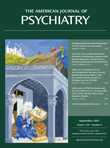The International Study of Schizophrenia (ISOS) pulls together data from a number of influential multinational studies of the long-term outcome of schizophrenia, including incidence cohorts from two World Health Organization (WHO) studies, the Determinants of Outcome of Severe Mental Disorders and the Reduction and Assessment of Severe Mental Disorders, and two additional incidence cohorts from centers in Chennai (Madras) and Hong Kong. Included also are data from prevalence cohorts in the earlier WHO International Pilot Study of Schizophrenia and a further study conducted in Beijing. The resulting analysis includes more than 1,000 subjects from 16 centers around the world who were followed up after the passage of 12 to 26 years. The book comprises an overview of the course and outcome of schizophrenia in the International Study of Schizophrenia sample as a whole, research reports from the various centers around the world, a highly informative conclusion, and a complete set of outcome data tables.
What do we learn of the lives of people with schizophrenia from this fascinating study, spanning as it does the last quarter of the twentieth century and conducted in a broad array of sociocultural contexts around the world? Most importantly, Kraepelin’s view that a deteriorating course is a hallmark of the illness just isn’t true. Heterogeneity of outcome, both in terms of symptoms and functioning, is the signature feature, an observation that has profound implications for our understanding and management of the condition. Good outcome was evident in more than one-half of the International Study of Schizophrenia subjects. In Agra, for example, no long-term disability was detected in 60% of patients, due in part, the chapter authors conclude, to the support of the extended family. In Cali, Colombia, two-thirds of the subjects were working full-time at follow-up, while in Nottingham, England, more than 60% were free of all psychotic symptoms. Less good outcomes were apparent in other centers, but the conclusion is clear: bad outcome is not a necessary component of the natural history of schizophrenia; it is a consequence of the interaction between the individual and his or her social and economic world.
We learn that the course of the illness over the first 2 years is the best predictor of the long-term course, but that this should not automatically give us grounds for pessimism in cases where the early course is poor. One-fifth of those who suffer a poor early course recover later in life. The diagnosis of schizophrenia, when it emerges, tends to be quite stable; nine out of 10 individuals initially diagnosed with the illness retain the label in later life. Mortality in schizophrenia is elevated around the globe, but more so in the industrial world.
Outcome from schizophrenia is routinely better in developing world settings, and this difference becomes apparent during the initial 2 years of illness. But even for developing world patients with a poor early course, outcome is superior to that of developed world patients with an equivalent early course. Employment rates are substantially greater for developing world subjects, and some authors have attributed this to the freedom from the economic disincentives to employment that can accompany the provision of disability benefits in the industrial world (1). The editors, who include a well regarded medical anthropologist, are cautious about attributing the improved developing world outcomes to specific cultural factors. Shantytowns may not be ideal “communities of recovery,” they point out, and extended families can be tyrannical as well as supportive. They conclude, however, that family involvement may be a key positive factor. They point to “the extraordinary engagement of Indian families in the course of treatment,” (p. 280) coupled with low criticism and reduced demands. They also point to a startling difference in one component of social inclusion. Nearly three-quarters of Indian subjects with schizophrenia were married at follow-up, compared with about one-third of people with the illness in the developed world centers.
This book offers a wealth of information about one of the world’s most insidious illnesses and grounds for therapeutic optimism. The manuscript for the work was first delivered to a publisher in 1999, but publication stalled and did not go forward until Oxford University Press took over the book and brought it to production. One wonders whether the growth of the Recovery Movement in the intervening years, with its emphasis on the potential for positive outcomes in psychosis, has detracted from the impact of the work on the field of psychiatry. Whether or not this is true, it will certainly provide evidence to fuel this movement; it should help reduce the stigma of mental illness and may change forever the social perception of schizophrenia.

